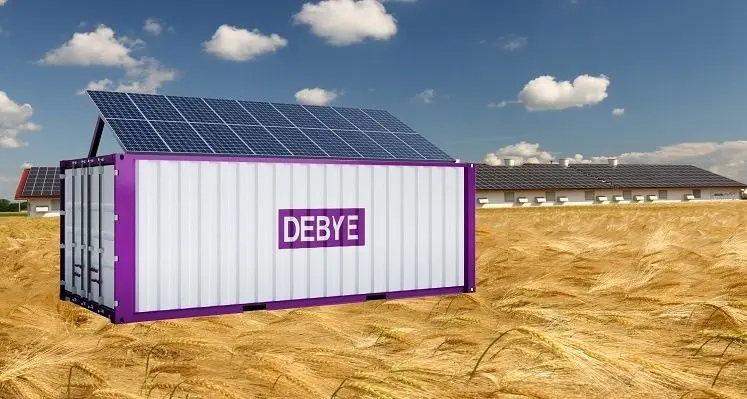The Agri-Tech Centres are working with innovative start-up Debye Ltd.'s groundbreaking lightning-based fertiliser technology that posesses immense potential to support farmers, climate and soil health
The system works by stimulating lightning's ability to capture nitrogen in the form of nitrates when it strikes water. By merely utilising air, water and electricity, Debye provides farmers on-the-spot or local supply of nitrate-based fertilisers. With the help of the Agri-Tech Centres, this groundbreaking technology is currently under trial, which if successful could allow Debye to undertake small-scale pilot projects on a farm setting within three years, subject to funding.
The 18-month feasibility R&D project is taking place on lettuce crops in Agri-Tech Centre CHAP’s vertical farming facility at Stockbridge. Project management and life-cycle analysis along with the measurement of the product's environmental and economical sustainability at each stage of its development, is being carried out by the Centre Agri-EPI. The objective of the trial is to develop a 1 kW proof-of-concept prototype, to quantify and compare crop yields and post-harvest properties for standard nitrogen fertiliser and fertiliser produced by Debye Ltd.’s machine and to determine its commercial viability.
“Fertiliser is critical to global food security, but current production methods cause environmental harm and are subject to market disruption," said Debye Ltd's chief technical officer, Dr Burak Karadag. “Our technology harnesses nature’s own elegant solution: lightning strikes water with such energy that it breaks apart atmospheric nitrogen molecules, creating nitrogen dioxide, which is soluble in water and readily absorbed by plants."
He further emphasised that while farmers are moving to green hydrogen in an attempt to reduce fertiliser's carbon footprint, local, renewably powered direct hydrogen capture technology could turn it into a near zero-emission process, and having far better outcomes for soil health.
For more information, visit: https://debye.co.uk/ and www.agritechcentres.com





